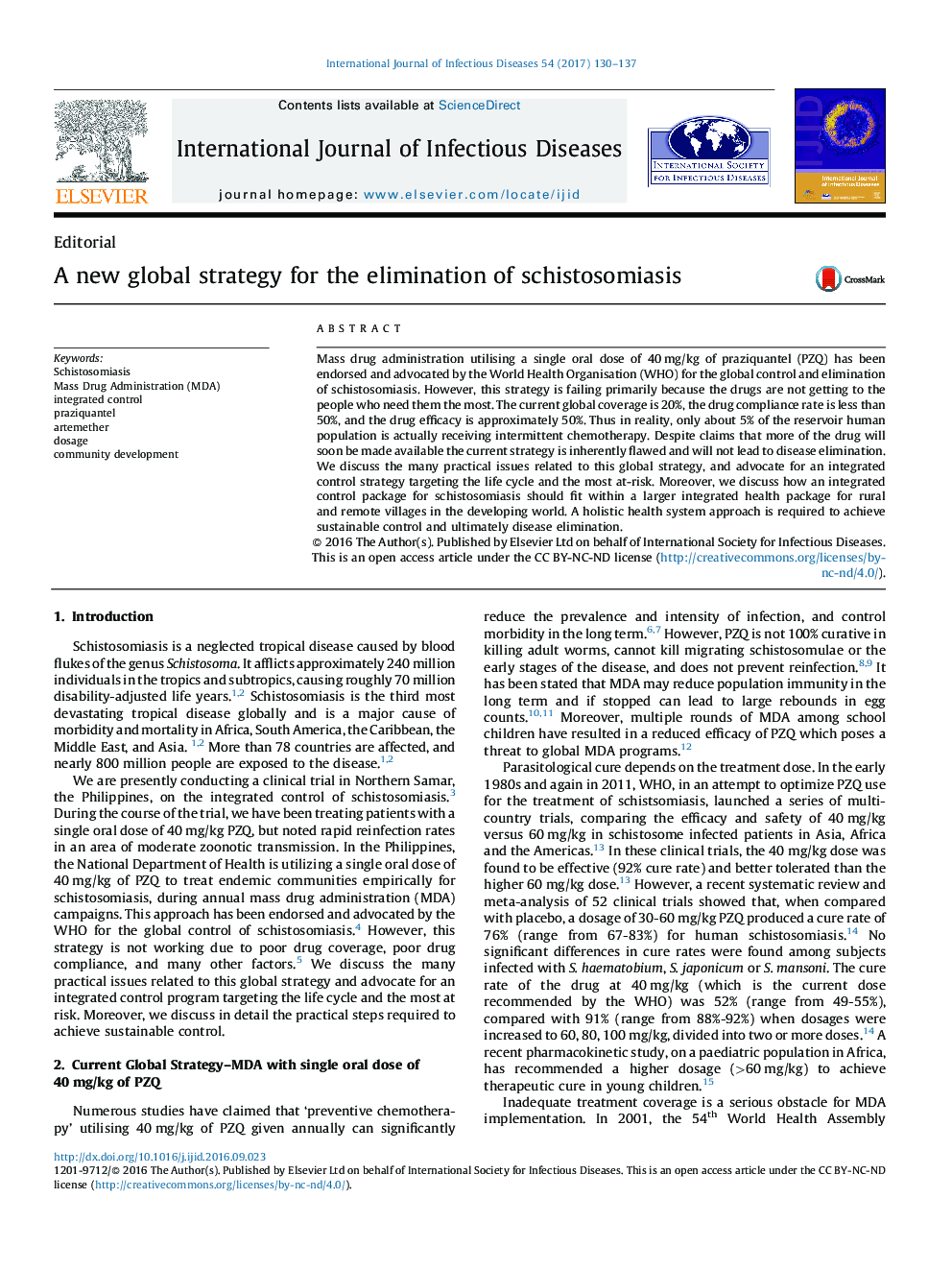| Article ID | Journal | Published Year | Pages | File Type |
|---|---|---|---|---|
| 5667229 | International Journal of Infectious Diseases | 2017 | 8 Pages |
Mass drug administration utilising a single oral dose of 40Â mg/kg of praziquantel (PZQ) has been endorsed and advocated by the World Health Organisation (WHO) for the global control and elimination of schistosomiasis. However, this strategy is failing primarily because the drugs are not getting to the people who need them the most. The current global coverage is 20%, the drug compliance rate is less than 50%, and the drug efficacy is approximately 50%. Thus in reality, only about 5% of the reservoir human population is actually receiving intermittent chemotherapy. Despite claims that more of the drug will soon be made available the current strategy is inherently flawed and will not lead to disease elimination. We discuss the many practical issues related to this global strategy, and advocate for an integrated control strategy targeting the life cycle and the most at-risk. Moreover, we discuss how an integrated control package for schistosomiasis should fit within a larger integrated health package for rural and remote villages in the developing world. A holistic health system approach is required to achieve sustainable control and ultimately disease elimination.
